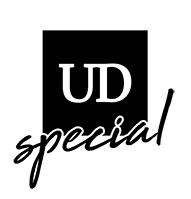Social engagement on the ground
Good businesses need good societies. A well-working community begins at the level of village life, goes beyond to regional development, and ends with fair international trade relations. Corporate responsibility in this context is called “corporate citizenship.” SECO has a number of concrete activities in this area.
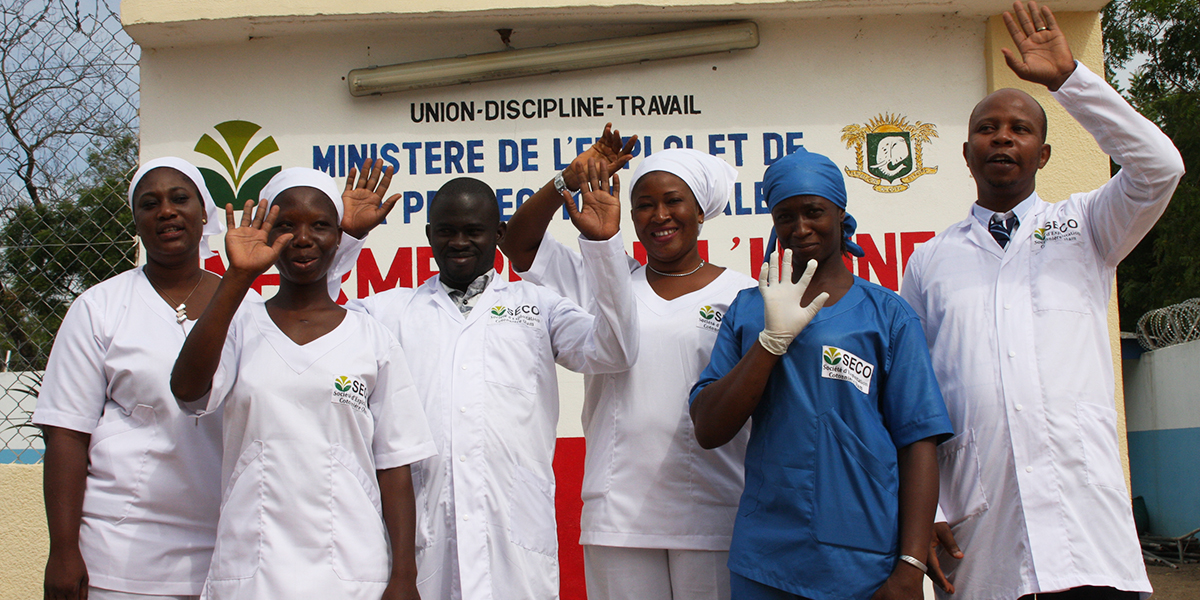
Infirmary: In 2018, SECO opened a hospital ward at the cotton gin factory in Ouangolo. It not only takes care of the factory workers but is also open to the local population. The villagers receive basic medical examinations and treatment. The most common diseases treated are malaria, stomach issues, and respiratory problems.
Seven doctors and nurses – all employees of Olam – work in the clinic. Food and medicine are provided by Olam and the nongovernmental organization IDEAL. The clinic also has motorcycles that bring women and children from the area to the clinic.
Treatment is free of charge for children under six. Older patients have to pay, but the costs are minimal (from €2 to €4), depending on which examinations and medicines are required. More serious operations or more complicated diseases still have to be treated in the district clinic, which is about 30 km away.
Seven doctors and nurses – all employees of Olam – work in the clinic. Food and medicine are provided by Olam and the nongovernmental organization IDEAL. The clinic also has motorcycles that bring women and children from the area to the clinic.
Treatment is free of charge for children under six. Older patients have to pay, but the costs are minimal (from €2 to €4), depending on which examinations and medicines are required. More serious operations or more complicated diseases still have to be treated in the district clinic, which is about 30 km away.
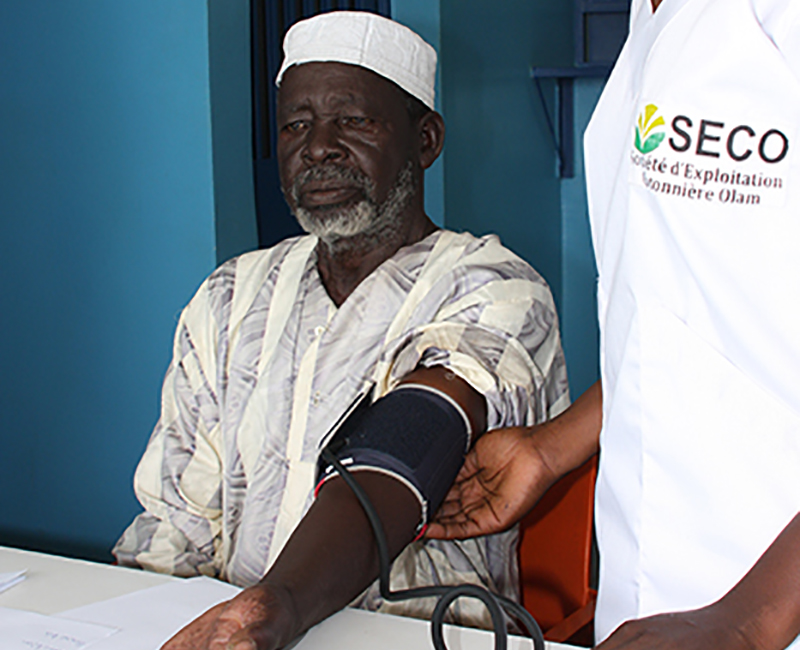
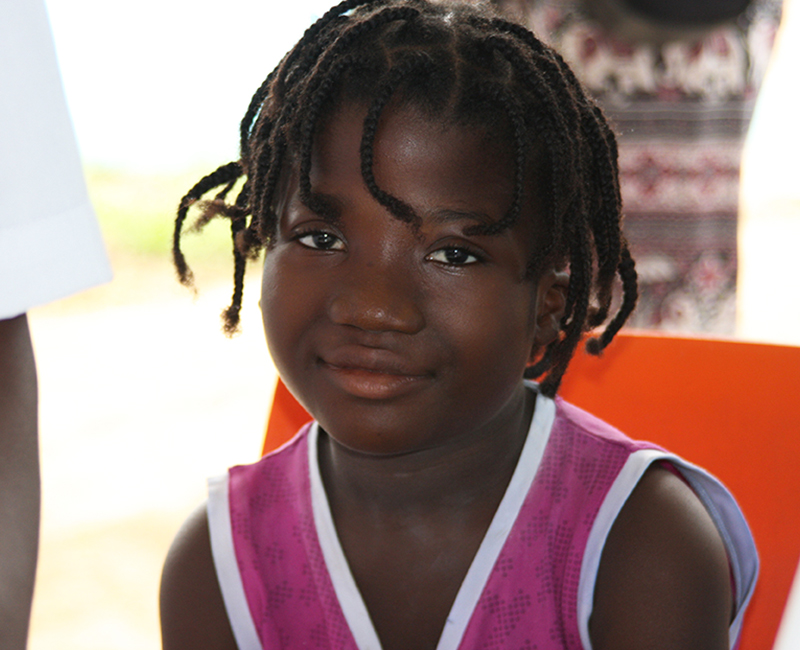
Water pumps: SECO has built four water pumps in the region and repaired another eight to help farmers and villagers. More pumps are planned for 2019. This provides direct help on site, as the women often have to walk a long way to fetch water. This time saved can be used for other purposes, for example for cultivating the fields.
Ali Sogodogo, Head of Operations, therefore also handles practical business issues that benefit the whole cotton industry: “For example, I sometimes find a region where the conditions for cotton production are good and there is huge potential, but people can’t grow cotton there because of local problems, and in most case it is the lack of water. But people need potable water to settle there, build houses, start a life, and finally grow cotton. This is where my colleague Josia comes in: She helps us to install water pumps. The company gives money for the construction of the pumps and pays 70 percent of the ongoing costs, and 30 percent is paid by the local cooperatives. The result is a new project partnership that is supported by both sides and makes sense for both.”
Ali Sogodogo, Head of Operations, therefore also handles practical business issues that benefit the whole cotton industry: “For example, I sometimes find a region where the conditions for cotton production are good and there is huge potential, but people can’t grow cotton there because of local problems, and in most case it is the lack of water. But people need potable water to settle there, build houses, start a life, and finally grow cotton. This is where my colleague Josia comes in: She helps us to install water pumps. The company gives money for the construction of the pumps and pays 70 percent of the ongoing costs, and 30 percent is paid by the local cooperatives. The result is a new project partnership that is supported by both sides and makes sense for both.”
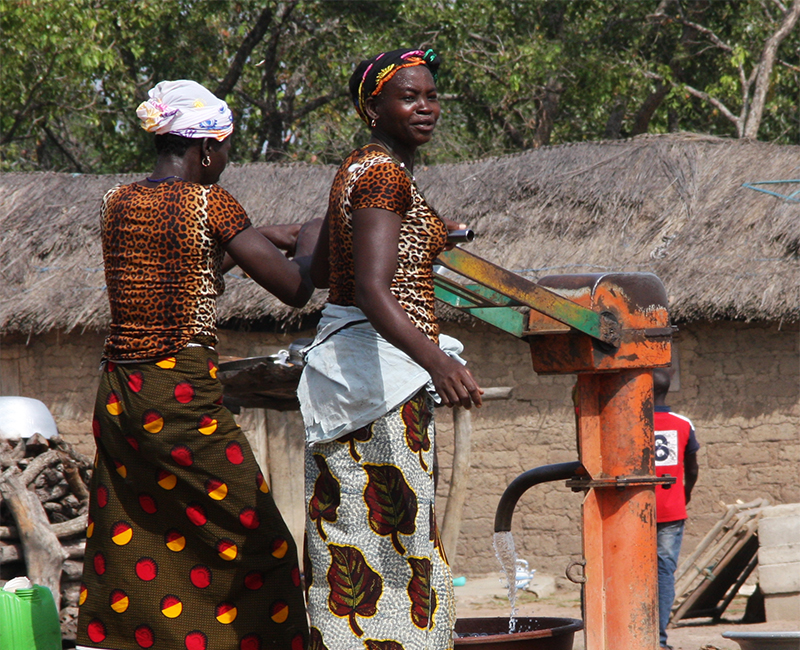
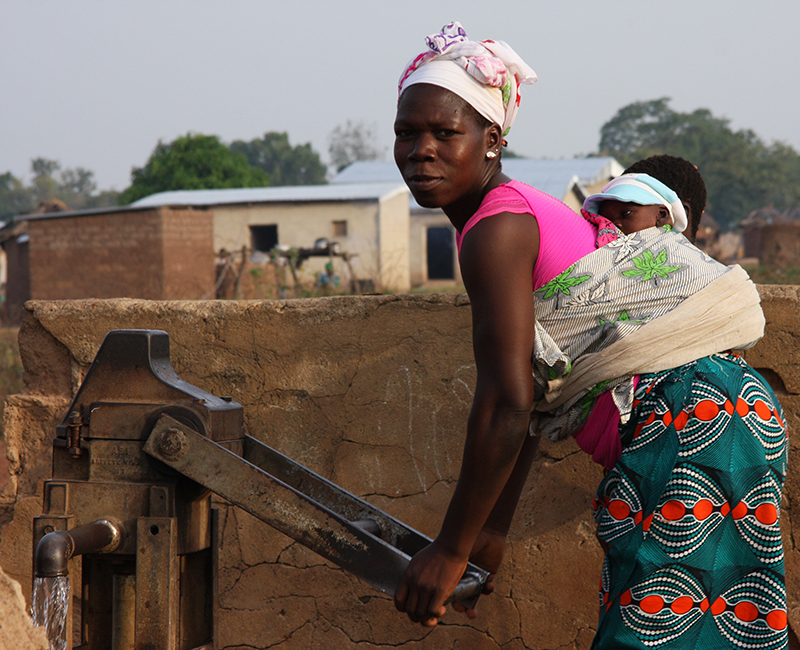
Tchwelewogo village: Female cotton harvesting
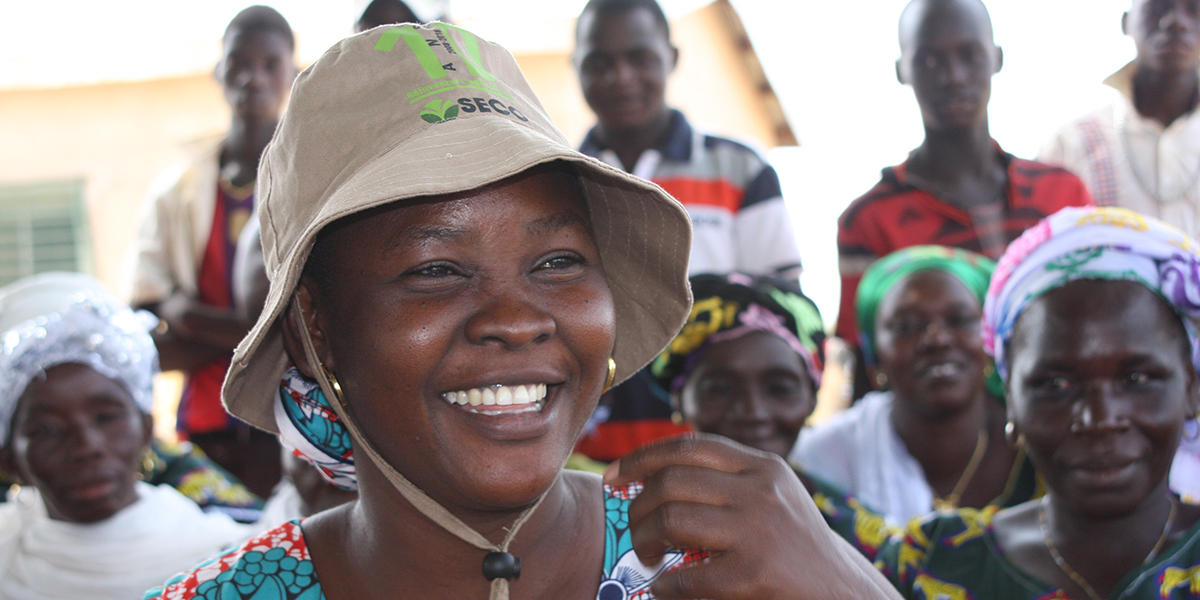
SECO also supports women in various projects and hopes that more female farmers will join the cotton business, in addition to planting and harvesting food. One example is the Association of Women in the village of Tchwelewogo, north of Ouangolodougou, on the border with Burkina Faso. Thirty women work two days a week on 1.5 hectares. The female cooperative started in 2015. The limitation of working only two days on the fields is because the rest of the time they have to care for their families: cooking and housework are still regarded as women’s work in Côte d’Ivoire. But even this limited time generates a small income that belongs to them, and they can use it to buy personal belongings, clothes, and – if the community water pump breaks down – they also have money to repair it. Ouattara Aminata, 37 years old and the second president of the association, smiles when asked about her group and describes their ambitious goals: “In 2018 we will have two hectares cultivated – and in the future maybe three, four, or five hectares? We will see..."
